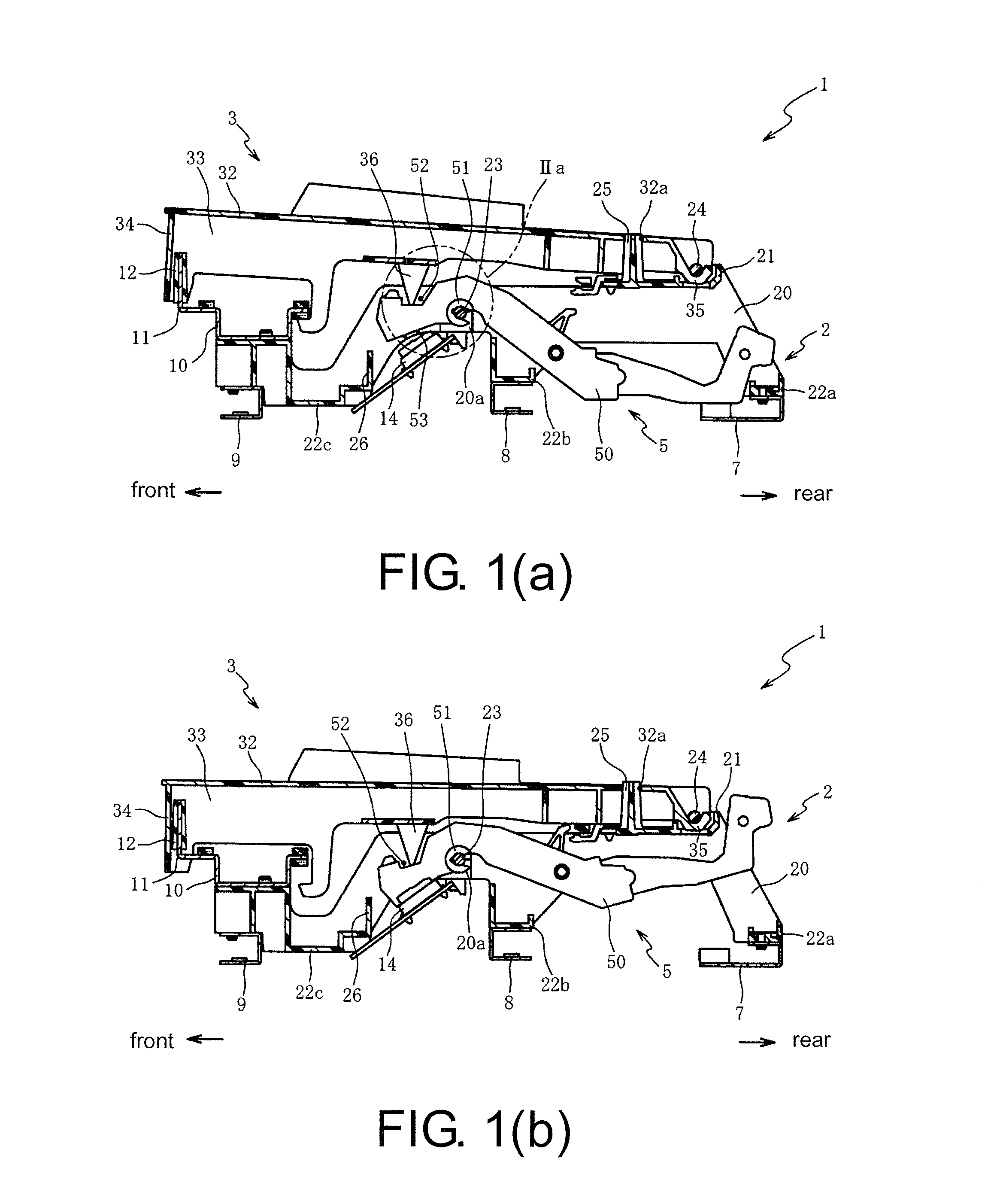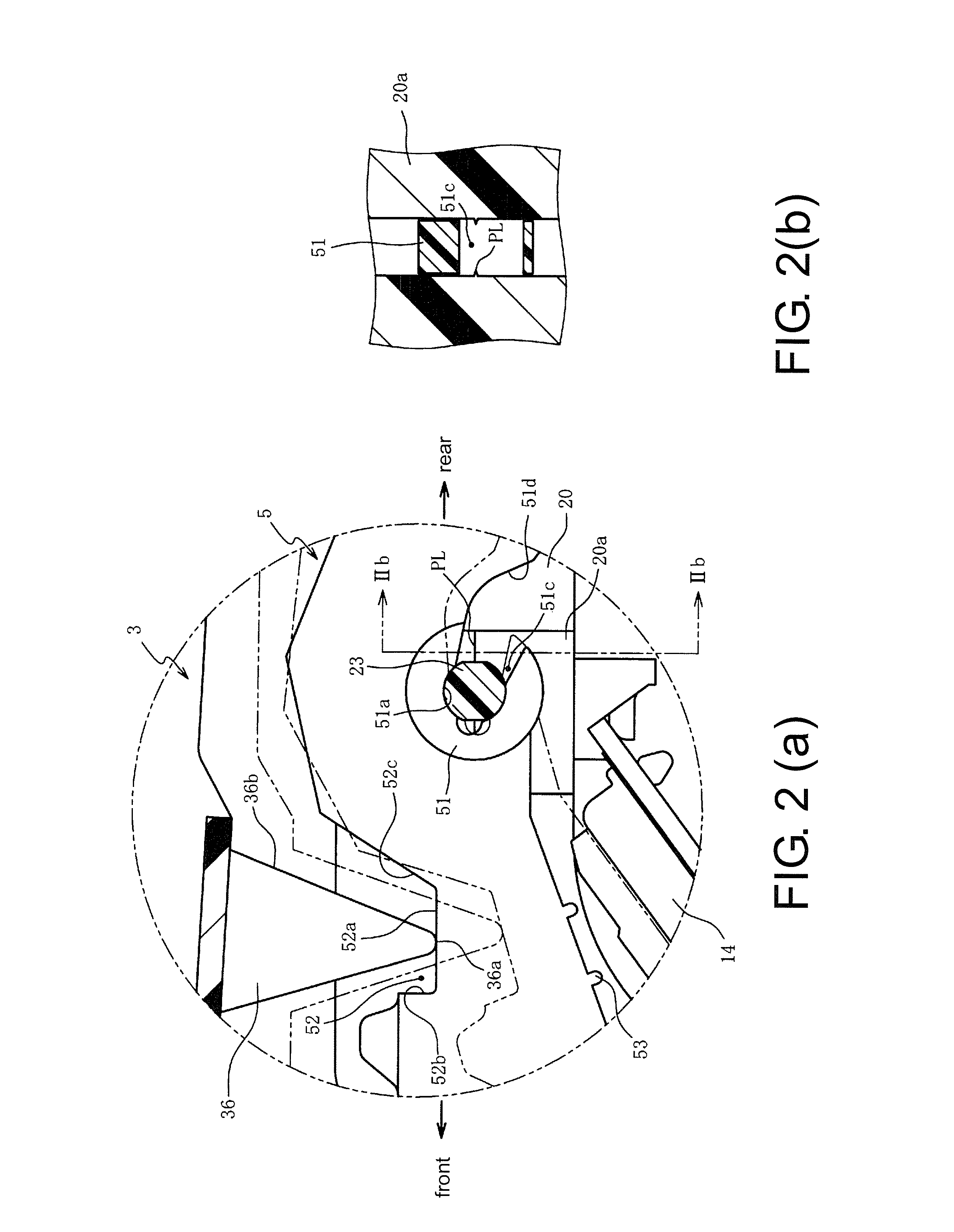Keyboard device of electronic musical instrument
a technology of electronic musical instruments and keyboards, which is applied in the direction of strings of musical instruments, instruments, electrophonic musical instruments, etc., can solve the problems of difficult to push the retaining hole, unfavorable workability, and complicated work required in the direction of retaining the support shaft, etc., and achieve the effect of correct installation and simple operation of pressing the key
- Summary
- Abstract
- Description
- Claims
- Application Information
AI Technical Summary
Benefits of technology
Problems solved by technology
Method used
Image
Examples
first embodiment
[0043]Hereinafter exemplary embodiments of the invention are described with reference to the affixed figures. FIG. 1(a) is a cross-sectional view of a keyboard device 1 of the first embodiment and particularly shows the case where a hammer 5 is in a retained state. FIG. 1(b) is a cross-sectional view showing the state where the keyboard device 1 shown in FIG. 1(a) is pressed. The case where the hammer 5 is in the retained state refers to a state that a hammer support shaft 23 is retained (pivotally supported) by a bearing 51 of the hammer 5. Moreover, in this embodiment, in the longitudinal direction of a key 3, the side of a key support shaft 24, which is the center of rotation of the key 3, is the rear and the side opposite thereto is the front.
[0044]The keyboard device 1 is a device disposed in an electronic musical instrument to output a signal corresponding to the operation of the key 3. In particular, with the keyboard device 1, the hammer 5 can be correctly installed by a sim...
second embodiment
[0084]The keyboard device 100 of the second embodiment is a device that shifts the hammer 5 in the temporarily secured state to the retained state through the key pressing operation by forming the parts, which are in contact with each other when the hammer 5 is in the temporarily secured state, on a vertical wall 26 (a portion of the chassis bottom wall 22c) and the hammer 5.
[0085]Therefore, the keyboard device 100 differs from the first embodiment in that the vertical wall 26, which is erected upward from the rear of the chassis bottom wall 22c, extends above the vertical wall 26 of the first embodiment. That is, the keyboard device 100 shifts the hammer 5 in the temporarily secured state to the retained state through the key pressing operation by forming a vertical wall side contact part C on the upper rear portion of the vertical wall 26 and bringing the vertical wall side contact part C in contact with the side surface 54 of the hammer 5 (the surface that is inclined obliquely d...
PUM
 Login to View More
Login to View More Abstract
Description
Claims
Application Information
 Login to View More
Login to View More - R&D
- Intellectual Property
- Life Sciences
- Materials
- Tech Scout
- Unparalleled Data Quality
- Higher Quality Content
- 60% Fewer Hallucinations
Browse by: Latest US Patents, China's latest patents, Technical Efficacy Thesaurus, Application Domain, Technology Topic, Popular Technical Reports.
© 2025 PatSnap. All rights reserved.Legal|Privacy policy|Modern Slavery Act Transparency Statement|Sitemap|About US| Contact US: help@patsnap.com



